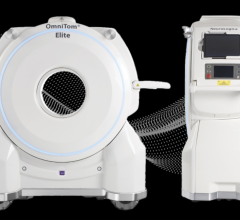
January 11, 2023 — NorthStar Medical Radioisotopes, LLC, a global innovator in the development, production and commercialization of radiopharmaceuticals used for therapeutic applications and medical imaging, announced it has achieved a major milestone in advancing its new technology for non-uranium based production of the critical medical radioisotope, molybdenum-99 (Mo-99). NorthStar’s proprietary electron accelerator technology has successfully produced Mo-99 at its recently completed Accelerator Production facility on its Beloit, Wis. campus. The “two beams on target” accelerator approach is highly efficient, with the potential to nearly double NorthStar’s commercial-scale Mo-99 capability with a single target set, and augments NorthStar’s ongoing domestic Mo-99 production in collaboration with the University of Missouri Research Reactor (MURR). Like all NorthStar processes, it uses non-uranium based technology that is independent of reliance on overseas nuclear reactors. NorthStar’s technology produces far less radioactive waste than uranium-based Mo-99 production processes, which makes the NorthStar process more environmentally friendly. The U.S. Department of Energy’s National Nuclear Security Administration (DOE/NNSA) provided financial and technical support for the project as part of its program to increase U.S. production of the vital medical radioisotope Mo-99 without the use of highly enriched uranium, which is a proliferation-sensitive material. Mo-99 is the parent radioisotope of technetium-99m (Tc-99m), the most widely used diagnostic imaging radioisotope, used to inform healthcare decisions for over 40,000 U.S. patients daily.
“This outstanding achievement of producing Mo-99 using electron accelerators marks another successful demonstration of how NorthStar continues to drive commercial-scale innovation solutions for industry to meet the needs of patients and advance clinical research,” said Frank Scholz, Ph.D., President and Chief Operating Officer of NorthStar Medical Radioisotopes. “Once our newly completed Accelerator Production facility is licensed and operational, NorthStar will have sufficient total production capability to meet nearly 40% of U.S. demand for Mo-99. This is particularly important given that the historically fragile overseas Mo-99 supply chain remains fraught with shortages, as recently as this past November, underscoring the continued need for domestic, reliable, non-uranium based Mo-99 supply for the United States. We are proud that our company can lead the way in supplying our RadioGenix System (technetium Tc 99m generator) customers with domestic Mo-99 despite these supply shortages, and we are excited by the prospect of bringing our Isotope Processing and Accelerator Production facilities online, upon completion of regulatory submissions, in mid-2023. We wish to express our deep appreciation for the great contributions in financial and technical support provided by DOE/NNSA in helping us to achieve this goal.”
“In 2018, NorthStar became the first U.S. company in nearly 30 years to produce Mo-99 domestically, using a non-uranium based process of irradiating and processing molybdenum-98 targets at MURR with neutron capture technology,” said James Harvey, Ph.D., Senior Vice President and Chief Science Officer of NorthStar Medical Radioisotopes. “NorthStar’s Accelerator Production facility in Beloit will be the first facility in the world to produce commercial-scale Mo-99 using this new technology. It is based on irradiation of molybdenum-100 targets with two electron beams rather than the currently used single beam approach used for the production of many other isotopes. Dual electron beam accelerator production is one of the most efficient methods of making Mo-99, and can also be used to produce therapeutic radioisotopes such as copper-67 (Cu-67) and non-carrier-added actinium-225 (n.c.a. Ac-225). It enables increased Mo-99 production capability, greater scheduling flexibility and results in a benign and easily managed waste stream.”
For more information: www.northstarnm.com
Related Radioisotope Content:
Update on HFR Reactor Outage – Medical Isotope Supply Returning to Normal
Update on Unplanned Outage of the HFR Reactor
SNMMI Issues Alert That HFR Outage Will Impact Isotope Supply
How Nuclear Fusion is Revolutionizing Medical Isotope Production
FDA Approves Additional Molybdenum-99 (Mo-99) Filling Lines at NorthStar Medical Radioisotopes
Medical Isotope Industry Opposes Export of Highly Enriched Uranium for IRE
IBA and NorthStar Medical Radioisotopes Expand Collaboration to Enable Global Availability of Tc-99m


 November 12, 2025
November 12, 2025 









